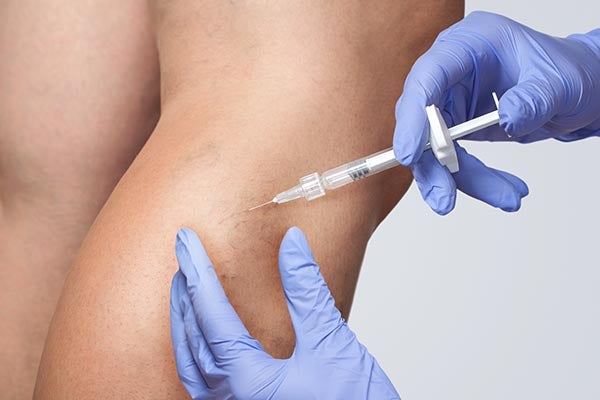What is chronic venous insufficiency? President Trump’s diagnosis explained.
August 1, 2025 President Donald Trump was recently diagnosed with chronic venous insufficiency—a condition that occurs when blood remains in the lower extremities for a period of time before resuming arterial circulation to the heart and lungs.
President Donald Trump was recently diagnosed with chronic venous insufficiency—a condition that occurs when blood remains in the lower extremities for a period of time before resuming arterial circulation to the heart and lungs.
This diagnosis came about after the President’s ankles appeared swollen in several photos. According to Westley Smith, MD, a vascular surgeon at Vascular Surgery Langhorne, this is one of the most common symptoms of chronic venous insufficiency, also known as venous reflux disease, which affects one in five adults.
“The symptoms that people classically experience are swelling, pain, achiness, fullness and/or heaviness [in the leg], particularly as the day goes on,” says Dr. Smith. “They’re typically at their best in the morning because they’ve been asleep all night with their legs flat. So gravity really affects the symptoms and that’s why most people notice it later in the day.”
Some less common indicators of chronic venous insufficiency include the presence of varicose veins on the legs, especially one that bleeds and lands someone in the ER, and the recurrence of infections in the legs with cellulitis.
Oftentimes, chronic venous insufficiency is a genetic condition—if an individual’s parent has it, there’s a good chance they’ll have it as well. Still, Dr. Smith stresses that it is a relatively benign disease and, generally, is not life- or limb-threatening. In fact, some who have venous reflux disease don’t even exhibit symptoms, even if it is discovered on an ultrasound.
“There’s a variety of procedures and they’re all minimally invasive. If you can tolerate having an IV put in, then you can tolerate the procedures for this case. These are some of the safest procedures that I perform as a vascular surgeon.” - Westley Smith, MD
Typically, treatment is only necessary if the condition is causing leg swelling and pain, thus negatively impacting a patient’s lifestyle and overall comfort. The two main procedures that Dr. Smith performs to correct chronic venous insufficiency—radiofrequency ablation and sclerosing agents—are both low-risk options that essentially close the vein and utilize small pediatric needles. Only local anesthesia is used, with patients able to drive, return to work or run errands on the same day as their treatment.
“There’s a variety of procedures and they’re all minimally invasive. If you can tolerate having an IV put in, then you can tolerate the procedures for this case. These are some of the safest procedures that I perform as a vascular surgeon,” says Dr. Smith. “And the long-term success rate for these procedures is in the 90th percentile. They’re typically one and done. You never need them again. You may have different veins that have problems in the future, so we would then treat that vein at that time. But we wouldn’t treat the same vein again and again.”
If symptomatic chronic venous insufficiency is left untreated, most patients will only experience an increase in swelling, pain and discomfort. More advanced cases may exhibit leg discoloration, skin thickening and ulcers.
Chronic venous insufficiency can happen at any age, ranging from individuals in their 20s and 30s to older adults in their 70s and 80s (President Trump is 79). Though this condition isn’t necessarily preventable given its genetic tendencies, it is possible to lessen—and even avoid—symptoms. For example, if an individual with chronic venous insufficiency has a job that requires them to be on their feet for long periods of time, diligently wearing compression socks can go a long way in decreasing or preventing swelling.
For anyone who is experiencing the classic symptoms of chronic venous insufficiency, or simply wants to get checked out due to genetic concerns, Dr. Smith says that they can expect to receive comprehensive care at Vascular Surgery Langhorne.
“The real specialists are the vascular surgeons at hospitals. We know how to put the whole package together with compression stockings and other care elements, making sure ulcers heal. It’s not just a hammer and nail situation,” he says. “We provide global care for you and a uniquely tailored approach to what you need for your veins.”
